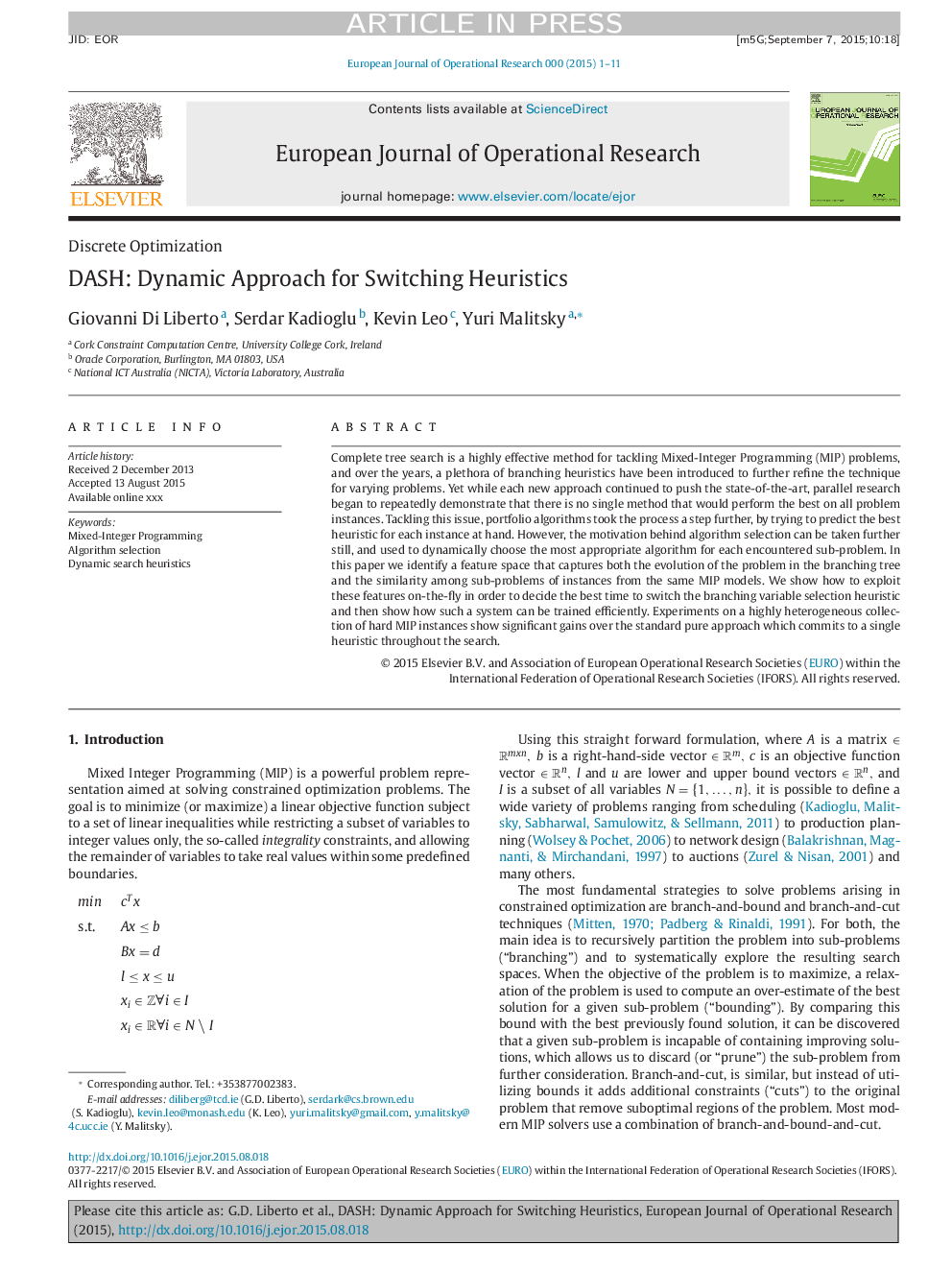| Article ID | Journal | Published Year | Pages | File Type |
|---|---|---|---|---|
| 6896171 | European Journal of Operational Research | 2016 | 11 Pages |
Abstract
Complete tree search is a highly effective method for tackling Mixed-Integer Programming (MIP) problems, and over the years, a plethora of branching heuristics have been introduced to further refine the technique for varying problems. Yet while each new approach continued to push the state-of-the-art, parallel research began to repeatedly demonstrate that there is no single method that would perform the best on all problem instances. Tackling this issue, portfolio algorithms took the process a step further, by trying to predict the best heuristic for each instance at hand. However, the motivation behind algorithm selection can be taken further still, and used to dynamically choose the most appropriate algorithm for each encountered sub-problem. In this paper we identify a feature space that captures both the evolution of the problem in the branching tree and the similarity among sub-problems of instances from the same MIP models. We show how to exploit these features on-the-fly in order to decide the best time to switch the branching variable selection heuristic and then show how such a system can be trained efficiently. Experiments on a highly heterogeneous collection of hard MIP instances show significant gains over the standard pure approach which commits to a single heuristic throughout the search.
Related Topics
Physical Sciences and Engineering
Computer Science
Computer Science (General)
Authors
Giovanni Di Liberto, Serdar Kadioglu, Kevin Leo, Yuri Malitsky,
